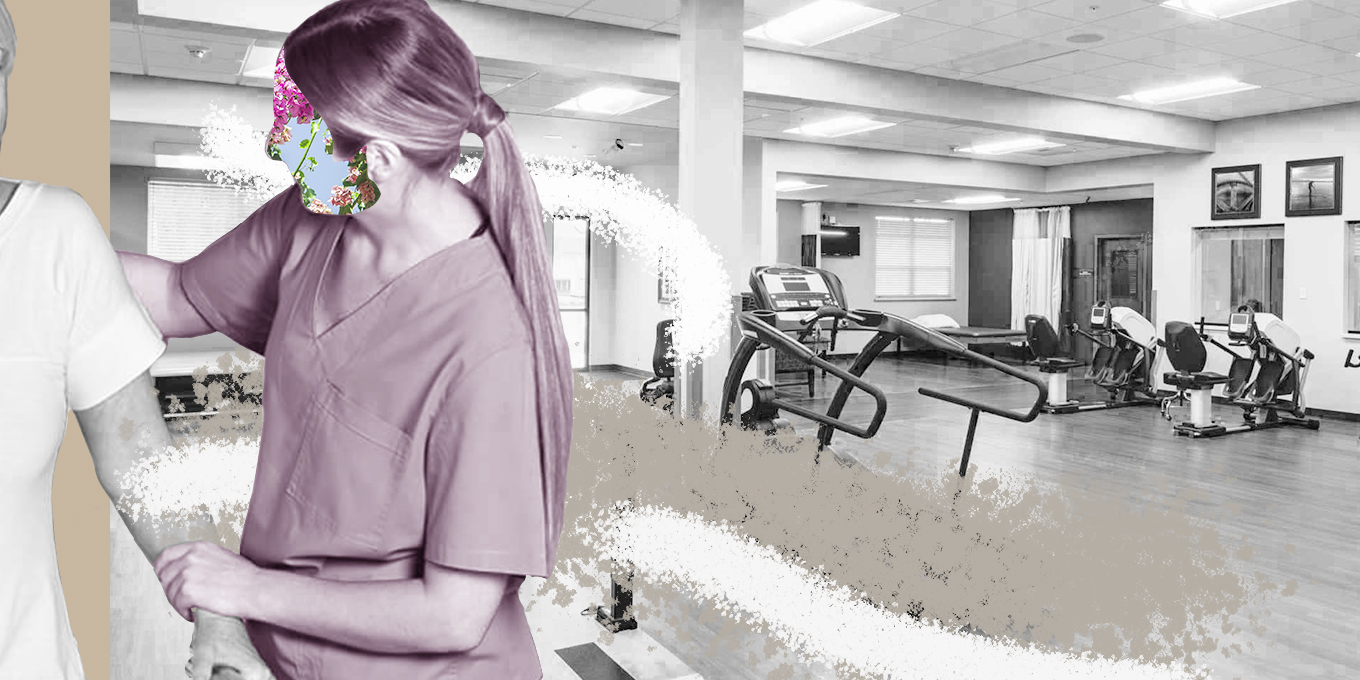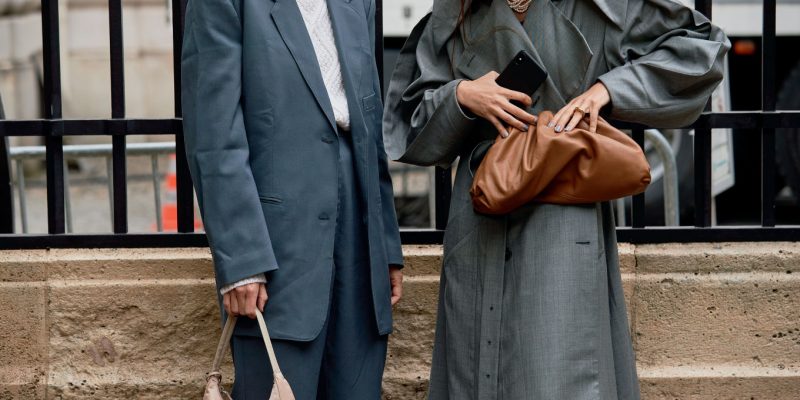Society
What It's Like to Work at a Long-Term-Care Facility During a Pandemic
"We're running out of masks and we’re worried."
by : Chloe Berge- Apr 2nd, 2020

The COVID-19 pandemic has swiftly and dramatically changed our daily lives. We’re speaking to Canadian women about how coronavirus has affected how they work, parent, run their businesses and more. For information on where to find the latest updates on the evolving COVID-19 situation in Canada, go here. Below, Vancouver resident Jessica (not her real name) explains what it’s like to work in a long-term-care home for the elderly as a rehabilitation assistant during the coronavirus pandemic.
There have been big changes at work. I’m still continuing treatments, including physiotherapy, speech therapy, exercise and ambulation programs, but it’s been very hectic. There are a lot of staff members who are worried about their health. All the entrances to the building have been locked except for one. When you walk into the foyer, there’s a stop zone where all employees and visitors have to fill out a questionnaire that asks things like “Do you have a fever or cough? Have you travelled recently? Where did you go? Have you come across anybody with coronavirus symptoms?”
We’ve had briefings about infection control, particularly about personal protective equipment, or PPE. We’re running out of masks and we’re worried. We have some people who are wearing masks all day every day and they’re walking around with gloves on. The thing is, a mask is only good until it’s saturated with someone’s breath. So sometimes if you wear one for 15 minutes, you have to take it off and switch to a new one. [Editor’s note: How long a mask can be safely worn varies depending on the type of mask and manufacturer; policies on the reuse of masks are constantly changing in response to the COVID-19 pandemic] They’re suggesting that we don’t wear them unless we’re entering a room where someone might have the virus. Management isn’t saying we can’t use them – it’s our right – but they’re also like, “Listen, there’s a big shortage.”
Personally, I am not concerned about contracting COVID-19. I’m just trying to keep a level head about this and follow the protocols. I’m super diligent about handwashing. I mean, I could still get it. But I could also go to the grocery store today and get it. Of course, I’m going to be at a higher risk because I’m dealing with people who are sick, but we need to stay calm because we’re here to help these people.
As healthcare workers, we’re also discouraged from self-isolating after international travel because we’re first responders. [Editor’s note: Rules on whether or not health-care workers should self-isolate after travel vary across Canada, and are constantly changing. Refer to your public health authority for the latest information.] Unless you are showing symptoms, you’re expected to be at work. I feel a little bit cautious about that because I don’t want to be a carrier. You can have the virus and not have symptoms for two weeks, so I could potentially be spreading it unknowingly. I’ve been doing my best to protect vulnerable people and not expose them, but, at the same time, we are needed here. There’s so much we’re trying to do, and people are burning out. We’re really exhausted.
But I guess the thing is we need to remember why we’re doing this. It might be a new virus that’s out there, but caring for sick and vulnerable people is not new to us as healthcare workers. We can handle this and should work together as a team to fight this. We have to.
– As told to Chloe Berge
READ MORE:
Pregnancy in a Pandemic: Here’s What You Need to Know
Newsletter
Join our mailing list for the latest and biggest in fashion trends, beauty, culture and celebrity.
Read Next

Fashion
This Canadian Swimwear Brand Designed Canada’s 2024 Women’s Olympic Beach Volleyball Team Uniforms
And they're *so* good.
by : Allie Turner- Apr 24th, 2024
Fashion
The Most Iconic Looks In Met Gala History, From 1973 To Now
40 years of the night that's all about trailblazing fashion.
by : ELLE Australia- Apr 24th, 2024

Beauty
Tested and Approved: A Skin Saviour That Works While You Sleep
Wake up with your glowiest skin yet—even if you didn’t clock eight hours.
by : ELLE Canada- Apr 11th, 2024




